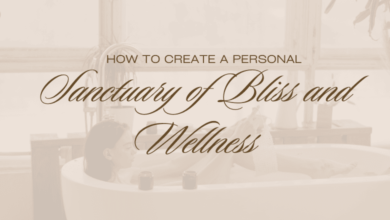Say Goodbye to Sleepless Nights: Tips on How to Sleep Better and Wake Up Refreshed

As a busy working professional, I understand the struggle of trying to get a good night’s sleep. Whether it’s due to stress, anxiety, or just an inability to shut off my brain, I’ve had my fair share of sleepless nights. But over the years, I’ve learned some effective tips and tricks to help me sleep better and wake up feeling refreshed. In this article, I’ll share these tips with you so that you too can say goodbye to sleepless nights and hello to restful, rejuvenating sleep.
Why is Sleep Important?
Before we dive into the tips, let’s first talk about why sleep is important. Sleep is essential for our physical and mental health. During sleep, our bodies repair and rejuvenate themselves, and our brains process and consolidate information from the day. Lack of sleep can lead to a host of negative consequences, including increased stress, decreased productivity, and even physical health issues like obesity and diabetes.
Common Sleep Problems
Unfortunately, many of us struggle with getting a good night’s sleep. Some common sleep problems include:
- Insomnia: difficulty falling or staying asleep
- Sleep apnea: a disorder where breathing repeatedly stops and starts during sleep
- Restless leg syndrome: a condition where a person feels an uncontrollable urge to move their legs while trying to sleep
- Nightmares or night terrors: disturbing dreams or episodes of intense fear during sleep
If you’re experiencing any of these sleep problems, it’s important to seek help from a medical professional. They can help diagnose and treat underlying conditions that may be affecting your sleep.
Tips on How to Sleep Better
Now, let’s get into some tips on how to sleep better. These tips are applicable to anyone, regardless of whether you have a diagnosed sleep disorder or just occasional difficulty sleeping.
How to Improve Sleep Quality
One of the most important things you can do to sleep better is to prioritize sleep quality. Here are some tips for improving the quality of your sleep:
- Stick to a consistent sleep schedule: Try to go to bed and wake up at the same time every day, even on weekends.
- Create a relaxing bedtime routine: This can include things like taking a warm bath, reading a book, or practicing relaxation techniques like deep breathing or meditation.
- Make your bedroom conducive to sleep: Keep your bedroom cool, dark, and quiet. Invest in comfortable bedding and a good mattress.
Natural Ways to Stay Asleep All Night
Another common sleep problem is waking up in the middle of the night and having difficulty falling back asleep. Here are some natural ways to stay asleep all night:
- Avoid caffeine and alcohol before bed: Both can disrupt sleep and cause you to wake up during the night.
- Limit screen time before bed: The blue light emitted by electronic devices can interfere with your body’s natural sleep-wake cycle.
- Try a natural sleep aid: Some natural sleep aids, like melatonin or valerian root, can help regulate your sleep cycle and promote restful sleep.
Lifestyle Changes for Better Sleep
In addition to the tips above, there are some lifestyle changes you can make to improve your sleep:
- Get regular exercise: Regular exercise can help regulate your sleep-wake cycle and promote restful sleep.
- Eat a healthy diet: A diet high in processed foods and sugar can interfere with your sleep, while a diet rich in whole foods can promote restful sleep.
- Manage stress: Stress can interfere with sleep, so finding ways to manage stress, like practicing mindfulness or seeking support from a therapist, can help improve your sleep.
Must Read:
Sleep Hygiene: Creating a Sleep-Conducive Environment
Sleep hygiene refers to the habits and practices that promote good sleep. Here are some tips for creating a sleep-conducive environment:
- Keep your bedroom cool, dark, and quiet: This will help signal to your body that it’s time to sleep.
- Invest in comfortable bedding and a good mattress: A comfortable sleeping surface is essential for restful sleep. If you’re prone to sleeping hot, look into bed cooling systems that regulate temperature all night long.
- Minimize distractions: Avoid having a TV or other electronic devices in the bedroom, and consider using earplugs or a white noise machine if outside noise is a problem.
Mindfulness Techniques for Better Sleep
Finally, practicing mindfulness can be a powerful way to improve your sleep. Here are some mindfulness techniques to try:
- Deep breathing: Taking slow, deep breaths can help calm your mind and relax your body.
- Progressive muscle relaxation: This involves tensing and then relaxing each muscle group in your body, starting with your toes and working your way up to your head.
- Guided imagery: This involves visualizing a calming scene or scenario, like a peaceful beach or a beautiful forest.
When to Seek Professional Help
While the tips above can be effective for many people, there may be times when you need to seek professional help for your sleep problems. If you’ve tried these tips and are still struggling with sleep, or if you have symptoms like loud snoring or gasping for air during sleep, it’s important to see a medical professional. They can help diagnose and treat underlying conditions that may be affecting your sleep.
Conclusion
Sleep is essential for our physical and mental health, but many of us struggle with getting a good night’s sleep. By prioritizing sleep quality, staying asleep all night naturally, making lifestyle changes, creating a sleep-conducive environment, and practicing mindfulness, we can improve our sleep and wake up feeling refreshed. If you’re still struggling with sleep, don’t hesitate to seek professional help. With these tips and the help of a medical professional, you can say goodbye to sleepless nights and hello to restful, rejuvenating sleep.






